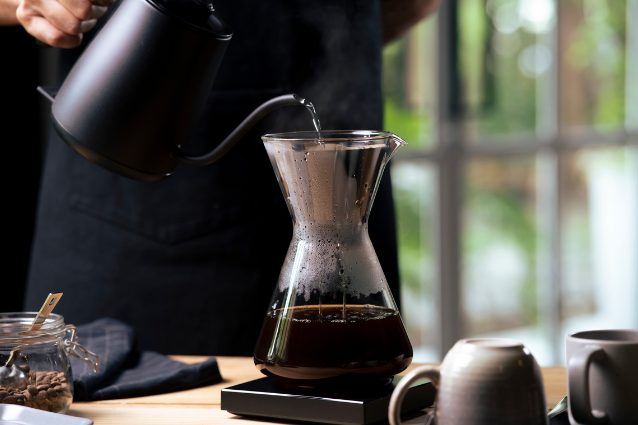Why It’s For The Best if You Never Freeze Your Coffee (Both Beans and Ground) Even if You Can!
Freezing coffee is a bad idea because it exposes the beans to moisture and temperature fluctuations, degrading their quality and flavor. Coffee beans are porous and absorb odors, leading to a stale and potentially moldy brew. Instead, store coffee in an airtight container in a cool, dark place like a pantry, which preserves its rich flavors and aromas for a delightful cup every time.

Storing coffee can be as nuanced as brewing it. Many believe that freezing coffee is a good way to extend its shelf life. However, even though you technically can freeze coffee, it’s not the best practice if you want to maintain its flavor and quality. Let’s explore why storing coffee in the freezer is a frosty mistake and uncover the best methods for keeping your coffee fresh.
The Freezing Conundrum
At first glance, the freezer seems like a logical place to store coffee. Freezing preserves many foods, so why not coffee? The main issue lies in the coffee’s delicate nature. Coffee beans are porous, which means they easily absorb moisture and odors from their environment. In the freezer, coffee is exposed to fluctuating temperatures and moisture every time the door is opened. This can lead to condensation on the beans, which degrades their quality and flavor.

The Flavor Freeze
Coffee’s complex flavor profile is a result of volatile oils and compounds that are easily affected by temperature changes. When coffee is frozen, the expansion of water molecules can damage the cell structure of the beans, leading to a loss of essential oils and, consequently, flavor. This is particularly noticeable when you defrost the beans, as the subtle aromas and flavors that make each cup unique can be diminished, leaving you with a lackluster brew.
The Moisture Menace
Moisture is coffee’s arch-nemesis. In the freezer, the risk of condensation is high. Every time the coffee is removed and exposed to warmer air, condensation forms on the beans or grounds. This moisture can lead to staleness and even mold if the coffee is repeatedly taken in and out of the freezer. The freezer’s low temperature doesn’t entirely halt the staling process; it just slows it down, meaning your coffee is still aging, albeit at a slower rate.

Odor Absorption
Coffee’s porous nature also means it can absorb odors from the freezer. Unless you have a dedicated, hermetically sealed space for your coffee, it’s likely to pick up flavors from other foods stored nearby. Imagine your morning brew with a hint of last night’s leftover lasagna – not the most appetizing thought.
How to Properly Store Coffee
Instead of freezing, store your coffee in a cool, dark place. An airtight container is essential to protect it from light, air, and moisture. A pantry or a cupboard away from direct sunlight and heat sources is ideal. For long-term storage, consider vacuum-sealed bags or containers designed specifically for coffee. By maintaining a stable, cool environment, you can preserve the rich flavors and aromas that make coffee so delightful.
;Resize,width=767;)
;Resize,width=712;)
;Resize,width=712;)

